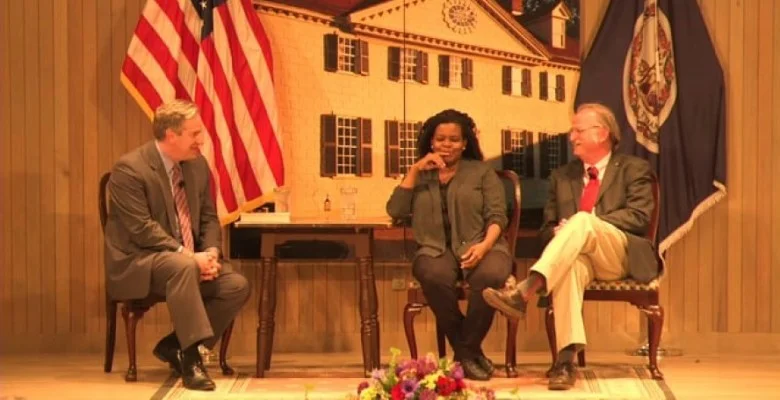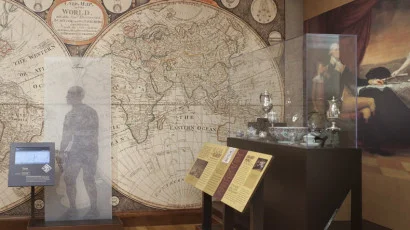Recently, renowned historians Annette Gordon-Reed and Peter Onuf came to Mount Vernon as part of the Michelle Smith Lecture Series to discuss their joint work, Most Blessed of the Patriarchs: Thomas Jefferson and the Empire of the Imagination.
Many recent biographies have looked at aspects of Jefferson in isolation, or found him inscrutable. You seem to be directly writing against that notion of a confusing, conflicted Jefferson.
Annette Gordon-Reed: We think he is as coherent as any other human being—any complicated and intelligent person—would be. One of the things we say in the preface is that we try, whenever it is at all reasonable to do so, to take him at his word when he says he believes something, or he thinks something is going to happen.
Peter Onuf: I think there's actually a surplus of coherence, if that's possible. What I mean by that is he’s self-conscious, and one of the themes of the book is Jeffersonian self-fashioning, and that's always with reference to audiences, so it's his life-long effort for him to find a place for himself in his world. That’s why I think you really need to know his world well, and I think also, conversely, you get to know his world a little bit better once you’ve studied him.

Annette Gordon-Reed and Peter Onuf in the Washington Library at Mount Vernon (Maria Bryk)
A key aspect of this book—the awareness of how people change over time—is crucial here.
Gordon-Reed: It’s really interesting, because even though the book doesn't proceed chronologically, we try to pay attention to chronology, and that’s been one of my pet peeves about writing on Jefferson. People will take something that happened in 1794 and explain something that happened in 1824.
Onuf: I think one of the most remarkable areas where there is this fallacy of the timeless mind, and I’ll admit that I was prone to this myself, or have been, is on slavery.
How do his ideas about slavery as an institution change over time?
Gordon-Reed: He starts out as part of a class of people that accepts slavery as a natural part of their lives, and then he begins to question that. In his commonplace books, he writes down the inscription for an African slave, a poem that’s talking about people ripped from their homeland, and by a cruel tyrant, forced to do all these kinds of things. Words that echo what he says in the excised part of the Declaration of Independence. He’s in his 20s. This is his vision of what it means to be against the slave trade. We look at that now and say, “that’s not an anti-slavery measure,” and it turns out not to be. But in his 20s, he actually thought it was.
Onuf: This is a good example of how we customarily think of Jefferson, because he tells us in 1814, when he writes to Edward Coles, that in colonial days, “We never thought of slaves as human beings.” That they were like cattle, and then he has his enlightenment epiphany, and that’s all you need to know, because once he’s realized that we’re dealing with real human beings, unjustly held in bondage, then that's what he holds true to, to the end of his life, but it’s a lot more complicated than that.

Annette Gordon-Reed and Peter S. Onuf
conducted as part of the Michelle Smith Lecture Series
Watch The Video

